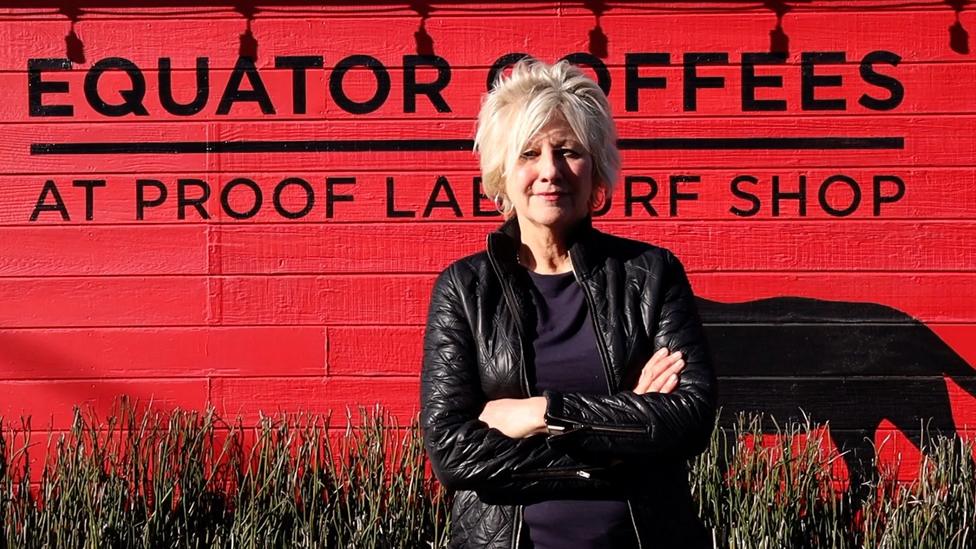Coronavirus coffee farmer: 'We're definitely scared'
- Published
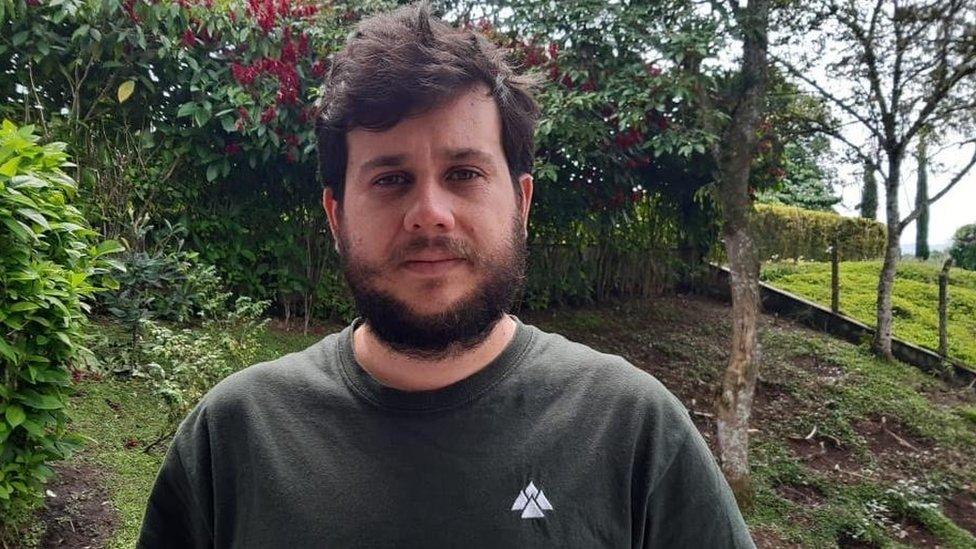
Miguel Fajardo, a coffee farmer in western Colombia, spent the last eight years trying to rebuild his family's fortunes after his father went bankrupt.
But he now fears he'll lose everything once again as his orders dry up in the wake of coronavirus.
"We're definitely scared, we don't know how things will progress," he says. "We will keep producing coffee but where are we going to sell it? That's the difficult question."
Demand for coffee has soared in recent weeks, as consumers stockpile basic supplies from supermarkets. However, it is a very different picture for pricier speciality coffee, which is what Mr Fajardo produces.
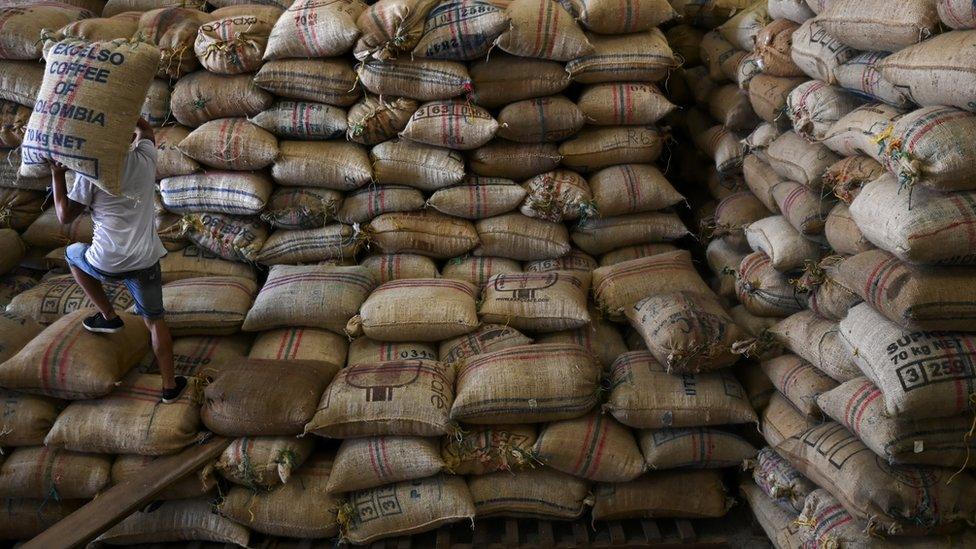
Colombia is the world's largest coffee producer after Brazil and Vietnam
This high-quality coffee, which is graded to have very few defects, external, is primarily sold in cafes and restaurants - many of which have shut due to coronavirus lockdowns.
The Speciality Coffee Association warns that many small businesses now fear for their survival, while there are mounting concerns for the livelihoods of farmers who grow the beans.
Demand fears
Mr Fajardo has seen a drop in orders of more than 50% in the past month alone, and he fears the situation is only going to get worse.
"We watch the news, and we can see most of the world is now in isolation," he says.
"The biggest fear is that this will bounce back to us, in that there's not going to be demand for speciality coffee."
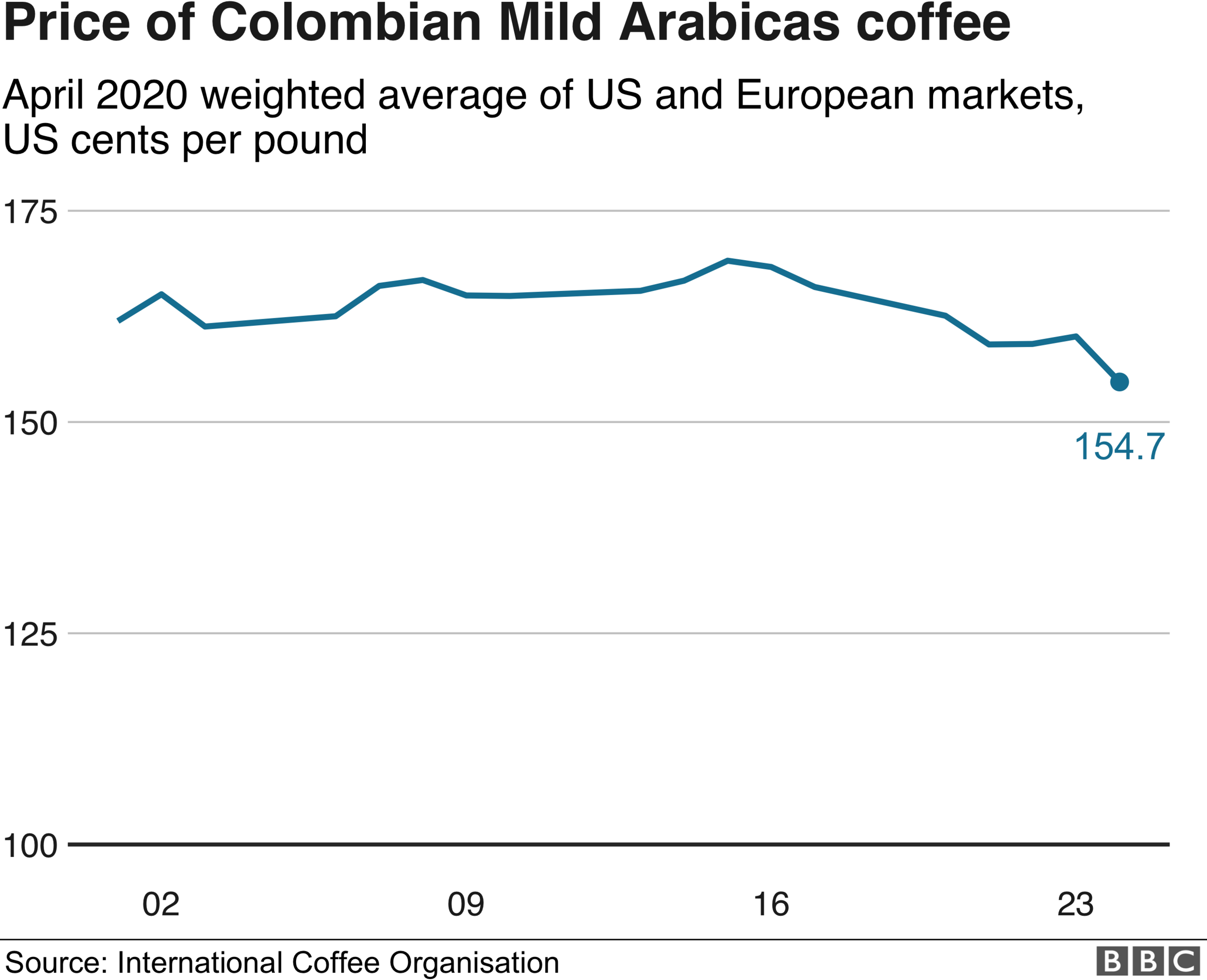
While commodity prices have remained fairly stable, they still offer coffee for cheap
Many farmers in Colombia's coffee belt already live a precarious existence.
After spiralling debts and a wildly fluctuating coffee price drove Mr Fajardo's father into bankruptcy, the family was forced to sell all their coffee farms.
'We never know'
It was at that point that he turned to speciality coffee production, because it guarantees farmers like him a stable price, agreed in advance. It allowed him to buy a farm of his own.
If speciality buyers disappear, he'll be forced once again to sell his coffee directly into the commodity market, where pricing can be very volatile.
"It's difficult to return back to commodity because with the uncertainty of price, we will never know if we will be able to invest in our farms, or in our households, or eventually in education," Mr Fajardo says. "So it's just returning back to where we started."
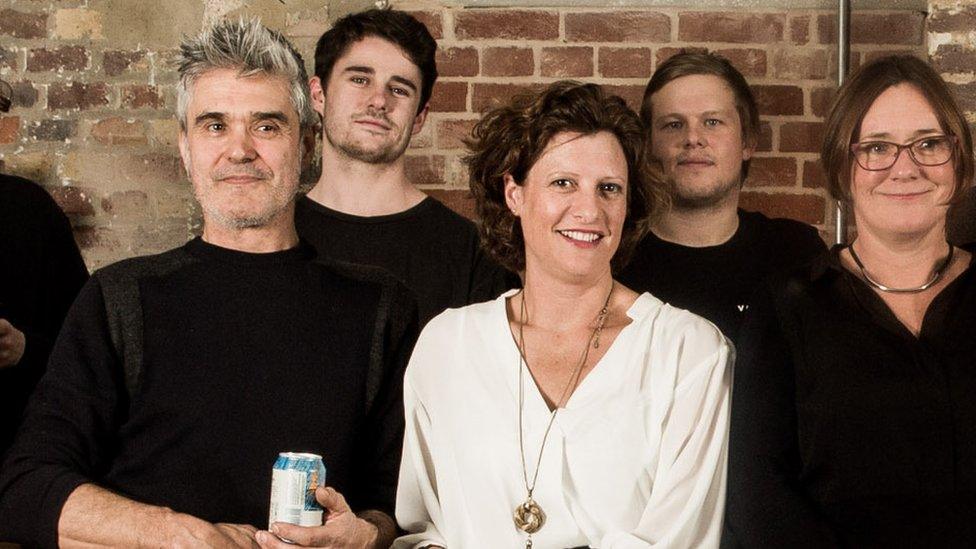
Emma Loisel, in white, says 91% of her firm's orders stopped overnight
One of Miguel's buyers is Volcano Coffee Works, a speciality roaster based in Brixton in South London.
Coronavirus has taken a huge toll on the business. They usually supply coffee beans to restaurants, hotels, offices and cafes, but when the UK went into lockdown in March, 91% of their orders stopped overnight.
"Our main customers are all closed," says Emma Loisel, co-founder and chair of Volcano Coffee Works.
"We've only got online, direct to consumer, to sell our coffee to."
'Bad news'
Online sales have surged, but Emma says these remain a tiny part of the overall business and won't offset the decline in orders from cafes and restaurants.
She warns that the speciality coffee industry might not survive the coronavirus shock. "This is bad news for coffee lovers and it's really bad for high streets. Let's face it, no-one wants just multinationals selling our coffee on our high streets."
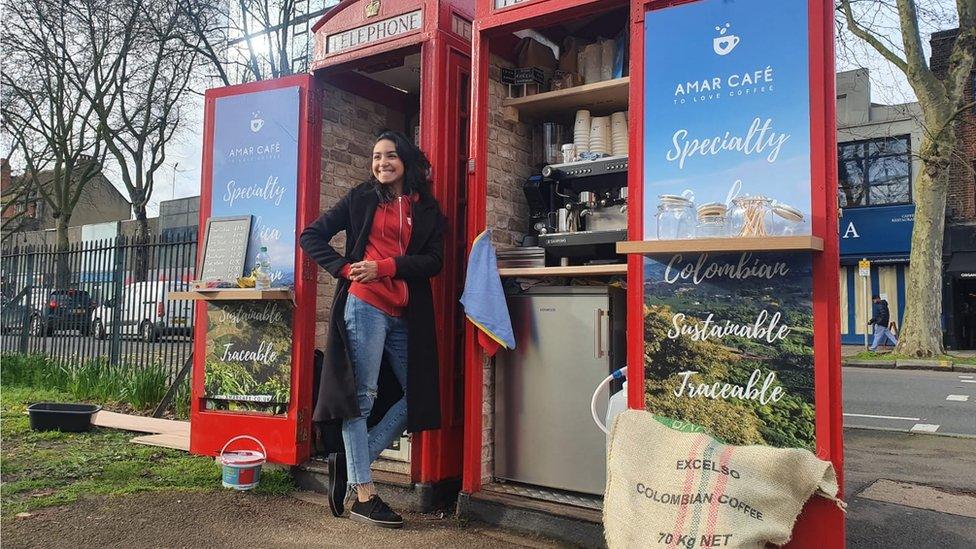
Lore Mejia opened a café in London in early March, but was forced to close just days later
While Ms Loisel is concerned about her own business and her customers' businesses, she's also worried about the farmers they work with.
"These are people who live off dollars a day at times, and we're really anxious that we're able to continue to support them."
Determined to reopen
For now, high streets are silent. Cafes and restaurants remain boarded up.
For Lore Mejia, the timing of all of this could not have been worse. She opened a cafe in Chiswick, in west London, in early March, but was forced to close just days later, when the UK went into lockdown.
Ms Mejia is now trying to reinvent her business by turning to online sales, and by making videos to teach people how to brew speciality coffee at home. She is determined that when all of this is over, she will reopen her café.
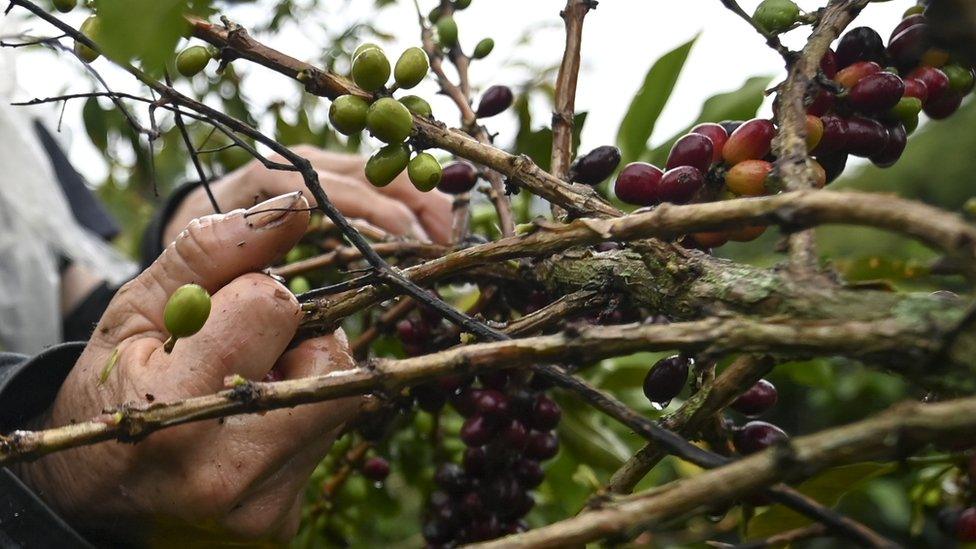
Colombian coffee can be bought wholesale for $1.55 per pound, making it hard to make a living
"I'm from Colombia, coffee has always been part of my life," she says. "We're definitely going to reopen, but the next few months are going to be all about survival."
Farmers and traders want cafes like Ms Mejia's to bounce back. Demand, even for more expensive coffee, will also eventually return.
Bankruptcy risk
But this is a challenge encompassing many interconnected businesses, stretching right into some of the most impoverished communities in the world. If these relationships are broken, they could take months, if not years, to rebuild.
That's why farmers like Miguel Fajardo fear the worst could still be to come.
"Eventually what that means is that we will have to change our crops, sell our farms, or even going into bankruptcy again," he adds. "It's difficult to know how things will evolve, but that's what really worries us for the future."
- Published27 April 2020
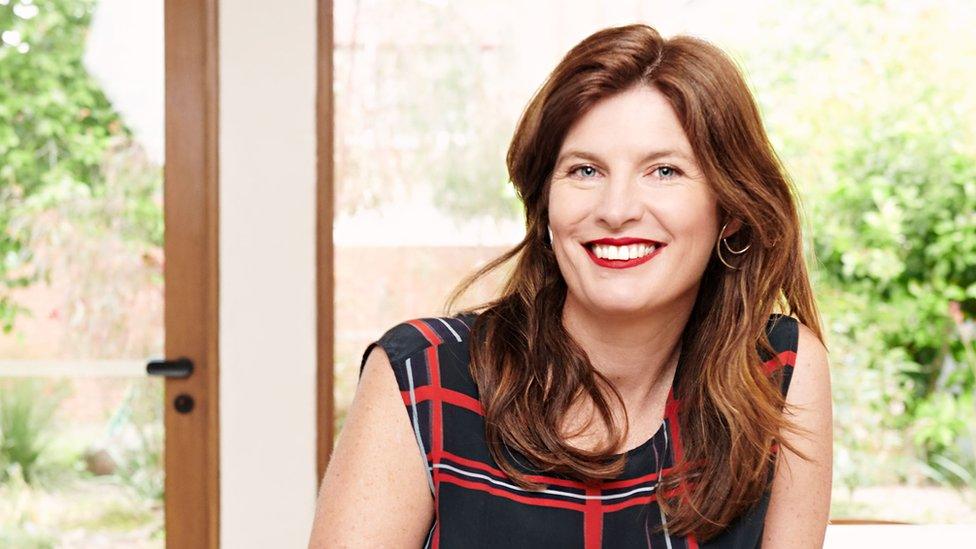
- Published3 April 2020
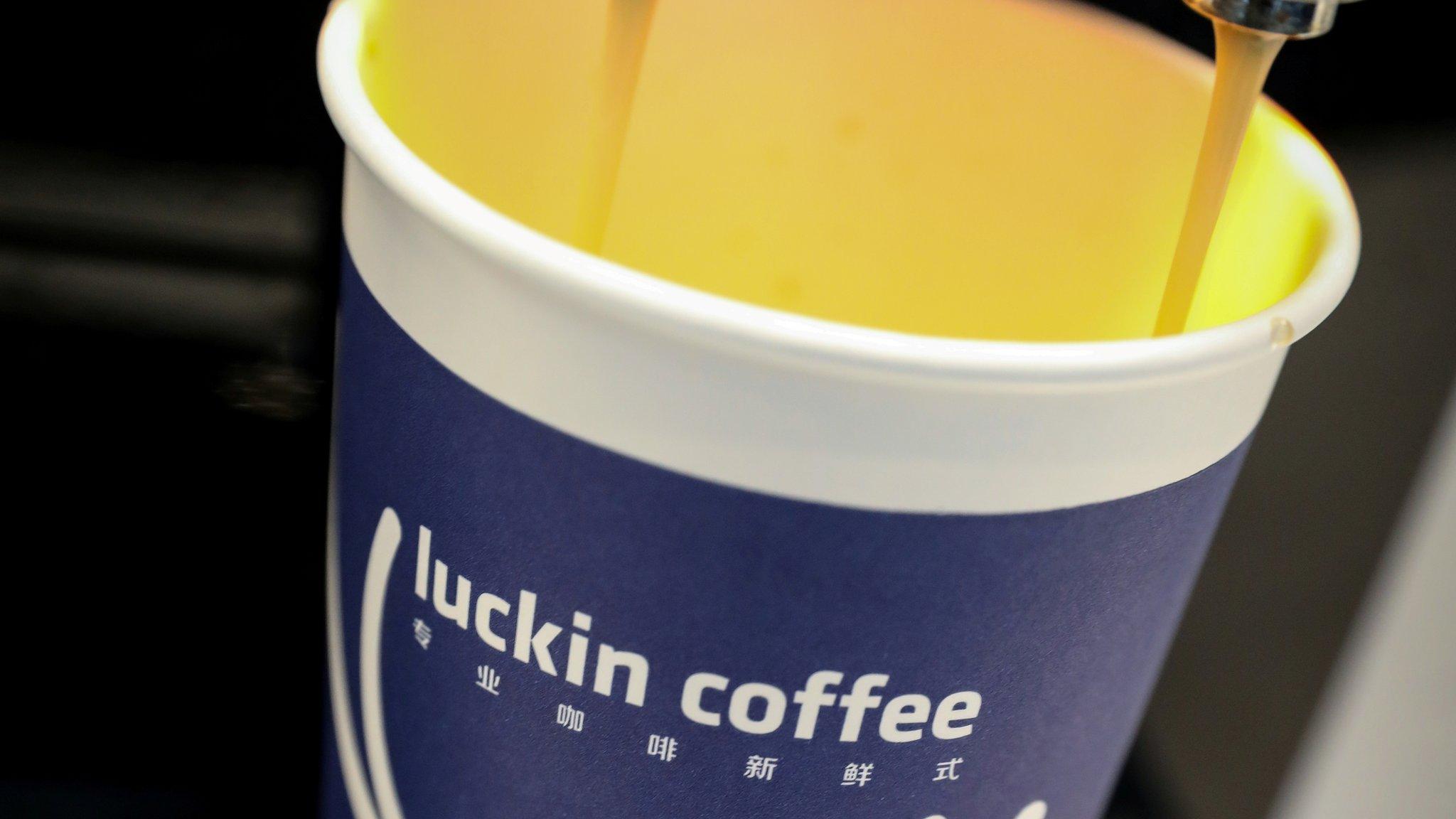
- Published11 March 2020
